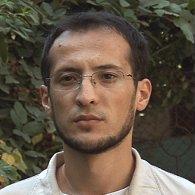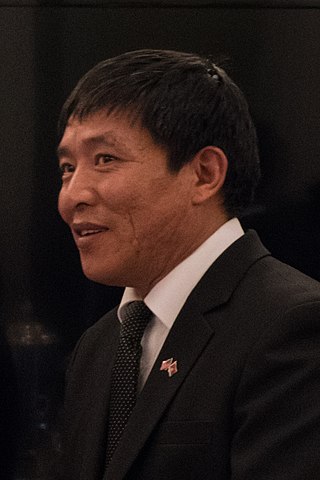Related Research Articles

Human rights in Uzbekistan have been described as "abysmal" by Human Rights Watch, and the country has received heavy criticism from the UK and the US for alleged arbitrary arrests, religious persecution and torture employed by the government on a regional and national level. Amnesty International stated that freedom of expression, association, and peaceful assembly continue to be restricted, and that relations between gay men are illegal.

Turkmenistan's human rights record has been heavily criticized by various countries and scholars worldwide. Standards in education and health declined markedly during the rule of President Saparmurat Niyazov.

Russia has consistently been criticized by international organizations and independent domestic media outlets for human rights violations. Some of the most commonly cited violations include deaths in custody, the systemic and widespread use of torture by security forces and prison guards, the existence of hazing rituals within the Russian Army —referred to as dedovshchina — as well as prevalent breaches of children's rights, instances of violence and prejudice against ethnic minorities, and the targeted killings of journalists.
Shi Tao is a Chinese journalist, writer and poet, who in 2005 was sentenced to 10 years in prison for releasing a document of the Chinese Communist Party (CCP) to an overseas Chinese democracy site. Yahoo! China was later discovered to have facilitated his arrest by providing his personal details to the Chinese government. Yahoo! was subsequently rebuked by a panel of the U.S. Congress, settled a lawsuit by Shi's family out of court, and pledged to reform its practices.
Censorship in Tunisia has been an issue since the country gained independence in 1956. Though considered relatively mild under President Habib Bourguiba (1957–1987), censorship and other forms of repression became common under his successor, President Zine El Abidine Ben Ali. Ben Ali was listed as one of the "10 Worst Enemies of the Press" by the Committee to Protect Journalists starting in 1998. Reporters Without Borders named Ben Ali as a leading "Predator of Press Freedom". However, the Tunisia Monitoring Group reports that the situation with respect to censorship has improved dramatically since the overthrow of Ben Ali in early 2011.

International organizations have frequently alleged that Azerbaijan has violated human rights standards established in international law.

Eynulla Emin oglu Fatullayev is an Azerbaijani journalist and the founder and editor-in-chief of the news website Haqqin.az. He was the editor-in-chief of the independent Russian-language weekly Realny Azerbaijan and Azerbaijani-language daily Gündəlik Azərbaycan newspapers. He was imprisoned for four years in Azerbaijan for his criticism of government's policies and for his comments on the Khojaly massacre. His sentence was condemned by Reporters Without Borders, International PEN, and the Committee to Protect Journalists, and Amnesty International named him a prisoner of conscience and 2011 "priority case."

Alisher Saipov was a Kyrgyzstani journalist of Uzbek ethnic origin and editor-in-chief of the newspaper Siyosat of the country's ethnic Uzbek minority, which reported on human rights abuses in neighboring Uzbekistan. Saipov often wrote articles critical of Uzbek President Islam Karimov and his government. He wrote extensively about torture in Uzbek prisons, the clampdown on dissent, and the rise of Islamic radicalism. He also worked as a correspondent for RFE/RL and Voice of America. He was shot dead at close range outside his downtown office in Osh in October 2007.
Manuel Vázquez Portal is a Cuban poet, writer and journalist known for his 2003 imprisonment.
On 13 May 2005, protests erupted in Andijan, Uzbekistan. At one point, troops from the Uzbek National Security Service (SNB) fired into a crowd of protesters. Estimates of those killed on 13 May range from 187, the official count of the government, to several hundred. A defector from the SNB alleged that 1,500 were killed. The bodies of many of those who died were allegedly hidden in mass graves following the massacre.

Azimzhan Askarov was a Kyrgyzstani political activist who founded the group Vozduh in 2002 to investigate police brutality. Of ethnic Uzbek descent, during the 2010 South Kyrgyzstan ethnic clashes, which primarily targeted people of the Uzbek nationality, Askarov worked to document the violence.
Jean-Claude Kavumbagu is a Burundian Internet journalist who has been arrested on multiple occasions for issues related to his reporting. In 2011, he was charged with treason in a high-profile trial and named a prisoner of conscience by Amnesty International.

Dhondup Wangchen is a Tibetan filmmaker imprisoned by the Chinese government in 2008 on charges related to his documentary Leaving Fear Behind. Made with senior Tibetan monk Jigme Gyatso, the documentary consists of interviews with ordinary Tibetan people discussing the 14th Dalai Lama, the Chinese government, the 2008 Beijing Olympics, and Han Chinese migrants to the region. After smuggling the tapes of the interviews out of Tibet, however, Dhondup Wangchen and Jigme Gyatso were detained during the 2008 Tibetan unrest.
Galima Bukharbaeva is an Uzbek journalist known for her reporting on state authoritarianism and her eyewitness account of the 2005 Andijan massacre.
Marcus Bensmann is a German journalist noted for his eyewitness coverage of the 2005 Andijan massacre in Uzbekistan. For his coverage, he was subsequently charged with providing "informational support to terrorism" and forced to leave the country that had long been his primary "beat".
Jesús Joel Díaz Hernández is a Cuban journalist who was imprisoned by the Cuban government from 1999–2001. His imprisonment attracted protest from several human rights organizations, including Amnesty International, which named him a prisoner of conscience.
Ocak Işık Yurtçu was a Turkish reporter detained for thirty-two months between 1993-1997 by the Turkish government for his reporting on the Kurdish–Turkish conflict, a case The New York Times called "emblematic" of the Turkish press's struggle for press freedom in the 1990s.
Phạm Hồng Sơn is a Vietnamese dissident. In 2003, he was sentenced to a 5 years imprisonment for political dissent against the government of Vietnam.
Salijon Abdurahmanov is an Uzbek journalist who contributed to Radio Free Europe, Voice of America and uznews.net. In October 2008, he was given a ten-year prison sentence for marijuana and opium possession. He asserted his innocence of the charges, stating that the drugs were planted by police officers. Several international human rights NGOs called for his release, including Amnesty International, which designated him a prisoner of conscience. In 2014 he was awarded the Johann Philipp Palm prize for freedom of expression and the press. He was freed from detention in October 2017.
References
- ↑ Felix Corley and Mushfig Bayram (16 March 2010). "Uzbekistan: Internet censorship continues". Forum 18. Retrieved 10 June 2011.
- ↑ "Uzbek embassy tells police to stop campaign for release of journalists". uznews.net. 11 May 2011. Retrieved 10 June 2011.
- ↑ "IPFA 2005 - Galima Bukharbaeva". Committee to Protect Journalists. 2005. Retrieved 10 June 2011.
- ↑ "Uzbek Prison Shows 'Impostor' To Red Cross". Radio Free Europe. 20 November 2012. Archived from the original on 24 November 2012. Retrieved 23 November 2012.
- 1 2 3 "Uzbek slammed with 10-year prison term". Committee to Protect Journalists. 10 October 2008. Archived from the original on 3 December 2012. Retrieved 23 November 2012.
- ↑ "Amnesty Declares Uzbek Journalist Prisoner Of Conscience". Radio Free Europe. 6 August 2008. Archived from the original on 24 November 2012. Retrieved 23 November 2012.
- ↑ "Uzbekistan: Journalist Sentenced to 10 Years". US Federal News Service. 11 October 2008. Archived from the original on 17 November 2018. Retrieved 24 November 2012– via HighBeam Research.
- ↑ "CPJ calls for release of jailed reporters in Central Asia". Committee to Protect Journalists. 15 May 2012. Archived from the original on 18 November 2012. Retrieved 23 November 2012.
- ↑ "Confirmation in Appeal of Mr. Salijon Abdurahmanov's Sentence to Ten Years in Prison". International Federation for Human Rights. 11 December 2008. Archived from the original on 22 July 2012. Retrieved 23 November 2012.
- ↑ "OSCE Says Uzbekistan Made Up Charges Against Journalist". Radio Free Europe. 16 October 2008. Archived from the original on 24 November 2012. Retrieved 23 November 2012.
- ↑ "Tribute to leading news site that was forced to close". 2015-01-14. Archived from the original on 2016-03-04. Retrieved 2024-01-17.